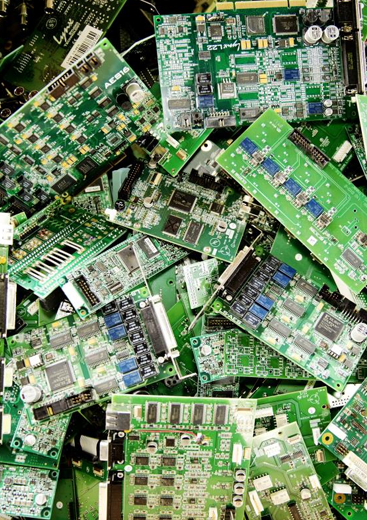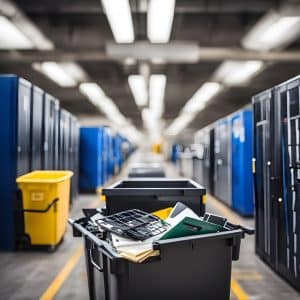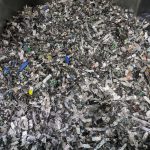
7
Jun. 2023E-Waste Recycling in Singapore – Promoting Sustainability and Environmental Responsibility
As technology continues to advance at an unprecedented rate, so does the amount of electronic waste (e-waste) generated globally. In Singapore, the rapid pace of technological advancement means that e-waste is becoming a growing concern. With limited space for landfills and the environmental impact of improperly discarded electronics, e-waste recycling is essential for promoting sustainability and environmental responsibility in Singapore and also the rest of the world.
What is E-Waste?
Electronics wastes, more commonly known as E-Waste refers to any electronic device or equipment that is no longer in use, including items like computers, phones, televisions, and batteries. These items contain hazardous materials like lead, mercury, and cadmium, which can leach into the soil and water if not properly disposed of. This not only poses a risk to the environment but also to public health.
Why Recycle E-Waste?
Recycling e-waste is crucial for a number of reasons:
Promotes sustainability: By recycling e-waste, we’re reducing the need for new resources to be extracted from the earth. This helps to conserve natural resources and promote sustainability.
Reduces pollution: Improperly discarded e-waste can release harmful chemicals into the environment, causing air and water pollution. Recycling helps to prevent this pollution.
Creates jobs: The e-waste recycling industry creates jobs for individuals in Singapore, helping to boost the economy.
Protects public health: E-waste contains hazardous materials that can pose a risk to public health if not properly disposed of. Recycling helps to minimize this risk.
E-Waste Recycling in Singapore
In Singapore, the National Environment Agency (NEA) has implemented various programs to promote e-waste recycling. The E-Waste Management System (EWMS) was launched in 2011, which requires producers and importers of electrical and electronic equipment (EEE) to ensure that e-waste is properly disposed of. The NEA also provides a list of licensed e-waste recyclers on their website, ensuring that individuals and businesses can dispose of their e-waste responsibly.
How to Recycle E-Wastes in Singapore
If you’re looking to recycle your e-waste in Singapore, here are some steps to follow:
Identify the items you wish to recycle: This includes items like computers, phones, televisions, and batteries. Be sure to check with your local recycling center or e-waste recycler for a complete list of accepted items.
Find a licensed e-waste recycler: The NEA provides a list of licensed e-waste recyclers on their website. Be sure to choose a reputable recycler that adheres to environmentally-friendly practices. Licensed and award winning companies like Arkiva can be one of the options to consider.
Drop off your e-waste: Once you’ve found a licensed recycler, you can drop off your e-waste at their facility. Some recyclers may also offer pick-up services for larger items.
Ensure data security: Before disposing of any electronic device, be sure to remove all personal data from the device. This helps to protect your privacy and prevent identity theft.
Tips for Reducing E-Wastes
While recycling e-waste is important, it’s also essential to reduce the amount of e-waste generated in the first place. Here are some tips for reducing e-waste:
Use electronics for as long as possible: Instead of constantly upgrading to the latest technology, try to use your electronics for as long as possible before replacing them.
Repair instead of replace: If a device is broken, try to repair it instead of replacing it. This not only reduces e-waste but also saves money.
Donate or sell unwanted electronics: If you have electronics that are still in good condition but no longer needed, consider donating or selling them instead of throwing them away.
Choose eco-friendly electronics: When purchasing new electronics, choose eco-friendly options that are designed to be recycled or have a longer lifespan.
In conclusion, e-waste recycling is essential for promoting sustainability and environmental responsibility in Singapore. By recycling e-wastes, we’re reducing pollution, conserving resources, and protecting public health.










